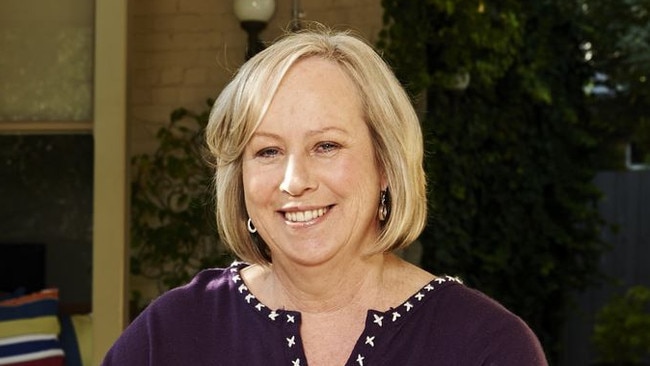Inflammatory bowel disease cases rise due to ultra-processed foods
Queenslanders aged 15 to 29 are the prime candidates to contract a debilitating lifelong disease that is seeing a rise globally, with the surge in cases driven by certain types of food many people consume every day. See which regions are faring worst.

QLD News
Don't miss out on the headlines from QLD News. Followed categories will be added to My News.
Queensland has the third highest prevalence of a debilitating bowel disease that impacts 180,000 Australians, costing sufferers thousands of dollars in medical expenses.
The State of the Nation report into Inflammatory Bowel Disease (IBD) has revealed ultra-processed food is contributing to a significant rise in the disease which was released on Tuesday by federal Health Minister Mark Butler.
The incidences of IBD are rising globally, and Australia is leading the pack – with cases set to rise by 238 per cent between 2010 and 2030 – with Queensland seeing the third highest prevalence rate in the country.
The painful, lifelong condition involving inflammation of the gastrointestinal tract is projected to disproportionately impact Australia’s working population, with the peak age of onset occurring between 15 to 29 years.

“We’re seeing more and more Queenslanders diagnosed with IBD, which can be attributed in part to environmental risk factors such as increased consumption of highly processed foods, smoking and more early childhood exposure to antibiotics,” Greg Moore, a board member of Crohn's & Colitis Australia and head of inflammatory bowel disease at Monash Health and Monash University.
“The report outlines the enormous costs to the healthcare system, the wider economy and most importantly to the people living with IBD and their families.”
Crohn's & Colitis Australia chief executive Leanne Raven says notable areas of high prevalence rates include Brisbane, Wide Bay and the Sunshine Coast as well as northern Queensland.
Tracy Murrin from Toowong was diagnosed with Crohn’s disease almost 10 years after doctors discovered significant ulceration in her stomach and intestines due to high acid levels.

“At 31, everything changed. Urgent bathroom visits, severe abdominal pain and eventually, frequent bloody diarrhoea took over my life. I was referred for a colonoscopy which is where they diagnosed me with Crohn’s disease,” Ms Murrin said.
IBD most commonly appears as Crohn’s disease, causing inflammation of the gastrointestinal tract, or as ulcerative colitis, where inflammation is limited to the colon or large intestine.
This comes as the report has found average time to diagnosis is 1.5 years and the average time to remission from diagnosis is a further three years.
“They gave me medications, but nothing seemed to work. Steroids became the only thing that helped, though the bleeding and ambulance trips to the hospital were terrifying,” Ms Murrin said.
“I desperately begged the doctors to do something, which is when they decided to remove part of my bowel. By this time I was 35.”
Ms Murrin said on the day of her operation a nurse asked her where she wanted the “stoma” – a surgically created opening in the abdomen.
“I had no idea what a stoma was, but before I knew it, I had to choose a spot on my stomach,” she said.
“After the surgery, I expected to recover in five days, as they’d told me. Instead, I got progressively sicker. My bowel had perforated because of the steroids, leading to peritonitis and sepsis.”
Ms Murrin said after further complications her large bowel was removed and she now has a stoma for the rest of her life.
Ms Raven said wait times for a colonoscopy in public hospitals in Australia can vary significantly depending on several factors.
“When comparing the states, we can see that the high patient demand is impacting wait times in Queensland, with Queenslanders waiting on average 141 days from when they get a
positive screen for faecal blood until they’re able to have a colonoscopy – both of these tests are key diagnostic tools and this delay therefore delays diagnosis of IBD and treatment,” she said.
The total economic burden of IBD to the community in 2025 is expected to be about $7.8bn. Over the next decade the disease’s total is expected to be $77.9bn, including healthcare costs, productivity losses and years of living with disability.
Ms Raven said on average a person living with IBD can spend $5900 a year managing their disease.
Costs associated with the disease include the need for frequent specialist visits, medications, diagnostic tests, allied health services and other out-of-pocket costs relating to the management of the disease.
“Poorly managed IBD can be debilitating and expensive for the person managing the illness, their family and Australian governments,” she said.
“The financial impact only compounds further if the disease becomes so severe that a person needs to reduce their working hours or leave the workforce altogether as a part of a recovery strategy,” the report said.
To improve outcomes for people with IBD, the report provides options for the government to consider, calling out the need for a national IBD clinical standard, a living well with IBD program, an IBD registry and a specific fund for IBD research in the Medical Research Future’s Fund.
Originally published as Inflammatory bowel disease cases rise due to ultra-processed foods


